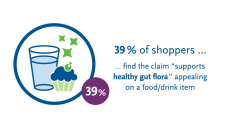Vitamin-B in diet helps slim avoid pancreatic cancer
contracting pancreatic cancer, according to a meta-analysis, but
supplements may have the opposite effect.
People with an average or below-average body weight were at a reduced risk of pancreatic cancer if they ate a diet rich in vitamin B6, vitamin B12 and folate, concluded the study in the American Association for Cancer Research's Cancer Research journal. The conclusions were based on the combined data of four large studies and found that the target group's risk was 81 per cent, 73 per cent and 59 per cent lower if their diet contained significant amounts of B6, vitamin B12 and folate respectively. "A person who has reason to be concerned about their risk of developing this cancer, which is relatively rare but quite deadly, should maintain a normal weight and eat their fruit and vegetables," said Eva Schernhammer, the study's lead investigator and an assistant professor at Harvard Medical School. Liver, wholegrain cereals, dairy products and green vegetables are good sources of B vitamins. The scientists warned, however, that nutrients from supplements were not seen to reduce the risk of contracting cancer and even suggested that people receiving B vitamins from multivitamin pills had a 139 per cent increased risk of developing the disease. "This is a preliminary but intriguing finding because it suggests that something in the vitamins may fuel pancreatic cancer growth," Schernhammer said. Schernhammer added that a previous study in Finland and two other large American studies had also made similar findings, but that it was still unclear why vitamin pills acted differently to vitamins absorbed from food. Research in animals has suggested that "if there is a dormant tumor, folate and other similar vitamins may stimulate growth", she said. "That might be especially true if a person did not take in enough of these nutrients consistently through diet, and then suddenly started taking multivitamins in an effort to become healthy," she surmised. According to Schernhammer, similar results have been found during studies looking at the use of oestrogen-rich soy. "Women who have eaten soy all their lives, such as people in Asia, have a reduced risk of developing breast cancer, but some studies have found that increased soy intake in women who have not eaten it before appears to be harmful," she explained. The study, which was funded by the National Institutes of Health, combined four large prospective cohort studies: one from the Women's Health Initiative and three from the Harvard School of Public Health, namely the Nurses' Health Study, the Health Professionals Follow-up Study and the Physician's Health Study. Scientists then performed a prospective nested case-control study to examine plasma concentrations of the nutrients from participants who had donated blood and answered questionnaires about their food intake and vitamin use before any cancer developed. Their analysis included 208 pancreatic cancer cases and 623 cancer-free control cases. Source: Cancer Research (American Association for Cancer Research) 1 June 2007, Volume 67, Issue 11 "Plasma folate, vitamins B6, B12, and homocysteine and pancreatic cancer risk in four large cohorts" Author: E. Schernhammer




















